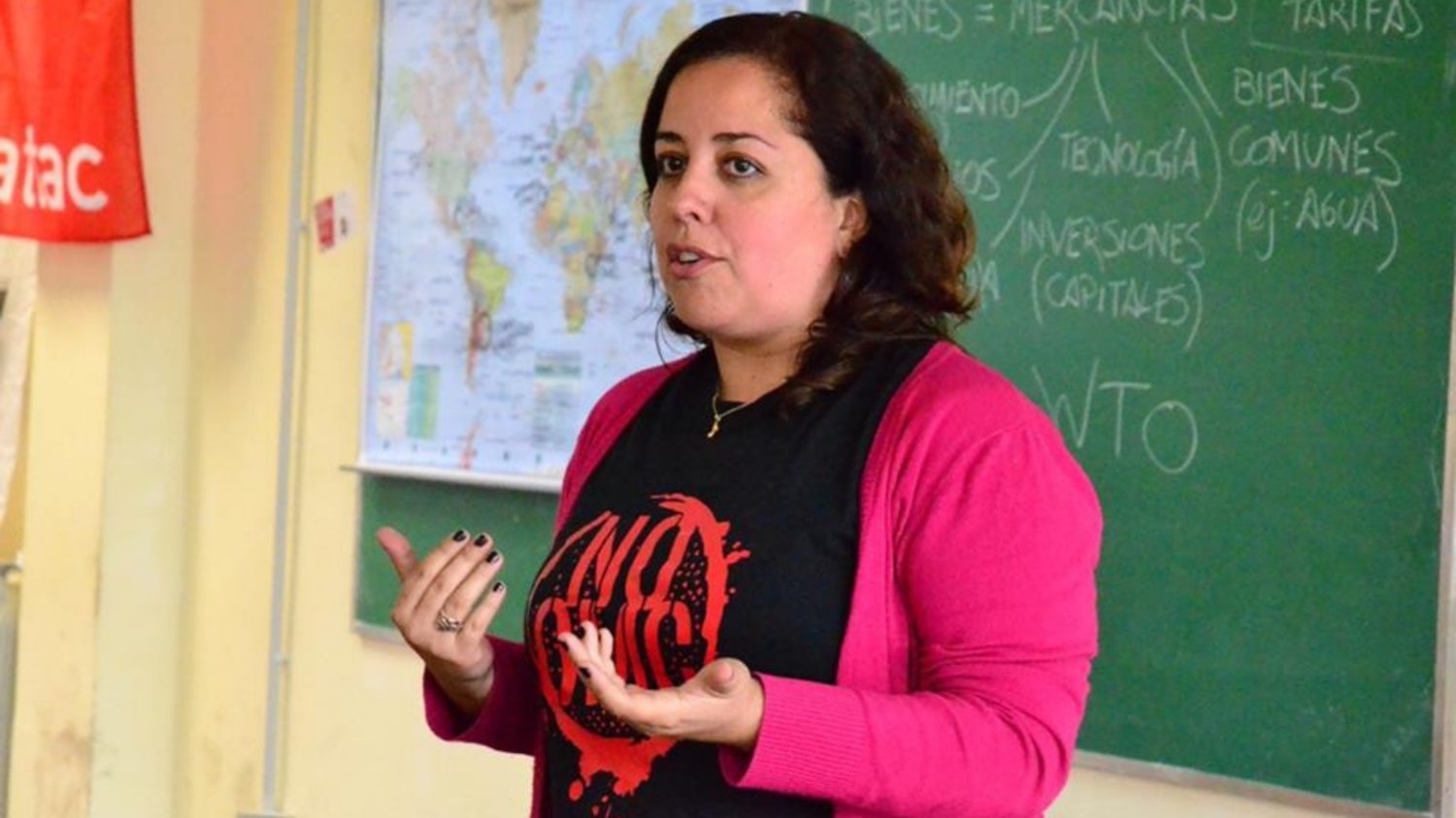
Luciana Ghiotto She is a researcher at CONICET, UNSAM and the Transnational Institute (TNI), specializes in the trade and investment agenda and analyzes how transnational companies act in the demands to the states.
In a recent report of the Rigi Observatory, Prepared at one year of the approval of this special regime, Ghiotto describes the mechanism for the solution of controversies between investors and states – known by its acronym in English, ISDS. It is an instrument that already use corporations such as Rio Tinto, Pan American Energy, Chevron, Shell, Ganfeng o First Quantum Energywhich requested rigi in Argentina. The study investigates how these companies act in other countries against institutional changes, social conflicts or complaints of pollution, and alerts about the new risks involved in the rigi regarding the authorization of disputes in international courts such as CIADI.
Argentina drags an adverse history in that field, where business demands seek to condition the states and discipline any attempt to prioritize environmental protection or the rights of communities above corporate profits.
From The daily left We talked to Luciana to expand on this subject.
– The investor-state controversies solution mechanisms, known as ISDS for its acronym in English, did they have any background prior to the Rigi?
Yes, what we are seeing in rigi did have an antecedent. The background is the bilateral investment treaties signed by the country. Argentina at this time has 48 of these current treaties that were mostly signed in the first 5 years of the 90s and this generated a legal framework for the protection of the investment where the foreign investor is given a benefit, which is the possibility of being able to go to international arbitration in case it includes that, for some reason, the National State modified its capacity to access the profit.
So, what these treaties do is give guarantees to capital, what is known as legal certainty, security that there will be no policy that will modify that gain, in reality, what is known as the expectation of gain. This of course has an impact, which is to limit the frame of action of the states, because these arbitration demands are a reality: Latin America receives 30 % of the demands globally. But they are also a form of blackmail, even when the investor does not present the demand, he uses this mechanism as a form of blackmail against the State, to try to reverse the regulatory policy that is affecting its access to gain.
– What novelty does Rigi contribute?
The Rigi builds on what was already coming in the investment treaties and what it does is also add some elements. An element is that it gives this same capacity not only to foreign capitals, but also to national capitals, that is to say that YPF, being a “national company”, can actually demand Argentina in international arbitration by jumping national justice. This is the novelty of the rigi: a parallel justice mechanism has been generated. There is no antecedent in this way, only in some contracts this was seen, but not in a national law that gives all this capacity.
– Do you see similarities between this mechanism and the extension of jurisdiction for external debt?
Yes, the extension of external debt jurisdiction is the same. There are even demands, that of Abaclat versus Argentina, which is a collective lawsuit of bonds, the famous Italian bonds against Argentina, who also use these mechanisms, and the case of bonds that use US justice is also clear on that path.
– Are there differences in how this mechanism between central and peripheral countries is applied internationally?
Look, what is interesting of this mechanism is that it applies both against periphery countries and against center countries. That is, we have seen in recent years that cases against European countries exploded mainly. There are also companies that have used it against the United States and against Canada, which obviously generated the alert. In the last 10 years it generated the alert of countries such as Italy, which left a very large treaty that is the treaty of the Energy Charter, there are demands against Germany, of Swedish companies, that is, they are companies from the center against countries of the center, that is, Metropolis countries that used this mechanism or these treaties to try to guarantee that their capitals will play safely worldwide, but obviously that also applies to them, because they also apply to them, because they also apply to them. Bilateral. Then this also applies to Germany, applies to Canada, applies to the United States, applies to France and so on.
It is a mechanism that applies to all because what these treaties do is to give legal certainty to capital in general, no matter where capital comes from definitive, they are mechanisms that guarantee the security of capital in the context of internationalization of capital since the 80s, then in the 90s that is why this global regulatory legal framework was established that is also known as lex mercatory or legal architecture of impunity, says Juan Hernández Zubizarreta.
-And Chinese companies, how do they enter the game of these mechanisms?
It is a very interesting topic of Chinese companies, because Chinese companies began using the mechanism quite recently. China has a huge amount of signed treaties, has more than 150 signed treaties. It has bilateral investment treaties with practically all the countries of the Global South, not with the OECD countries, with the central countries, but practically with all the countries of Latin America, with all African and Asian countries. So, you can play this game.
What we have seen is that as Chinese companies are arriving in a more noticeable way to the extractive sector, especially the mining sector, we already find two demands such as Gangfeng against Mexico and Xi Zijin against Colombia, which are two mega Chinese companies in the mining sector that also want to guarantee their investments. Then they begin to use this mechanism against countries in Latin America, they also begin to be global players in the use of international legal architecture that has been established, built for Western companies, but Chinese companies are also protected by this mechanism.
– Is an alternative legal framework discussed internationally that limits the action of companies and favors states and communities?
This mechanism, of course, has been under discussion in the latter, at least in the last 20 years, from 2003 onwards, is a mechanism that began to receive strong criticisms when the impacts it could have to be seen. Then there have been countries that left the dispute solution mechanism, which left the treaties and left CIADI, as in the case of, for example in Latin America, Ecuador, Venezuela and Bolivia. And in turn Ecuador, at the time of the Government of Rafael Correa, had a very active role in international politics because with a strong articulation of social organizations, which were seeing this problem globally, a debate was generated within the United Nations, of the UN, in the Human Rights Commission, for the generation of a binding treaty on companies and human rights. The idea is to make companies responsible for their human rights violations globally. Today you can’t. Today you can do it only within the framework of national jurisdictions while companies can demand international arbitration.
This has been tried to develop, obviously today within the framework of the multilateralism crisis is much more complicated, and it is a time when there is an advance in favor of the freedom of capital and not of control or performance requirements on capital. So, this makes it the most clearly in this context and not proposals such as the binding treaty. In that sense, at least what has been driven from campaigns is for countries to get out of treaties, get out of CIADI and have a national legal framework again, which is what already exists, which is the national justice with all its problems. But thus avoid the use of arbitration that generates, on the one hand, the shrinking of the policy spacethat is, an achicming of the regulatory capacity of the State and on the other hand it works as a concrete blackmail so that states do not advance in environmental protection policies, protection of human rights or protection of labor rights. In that context, rigi occurs in a context of freedom of capital and not of protection of human beings.
Source: www.laizquierdadiario.com

